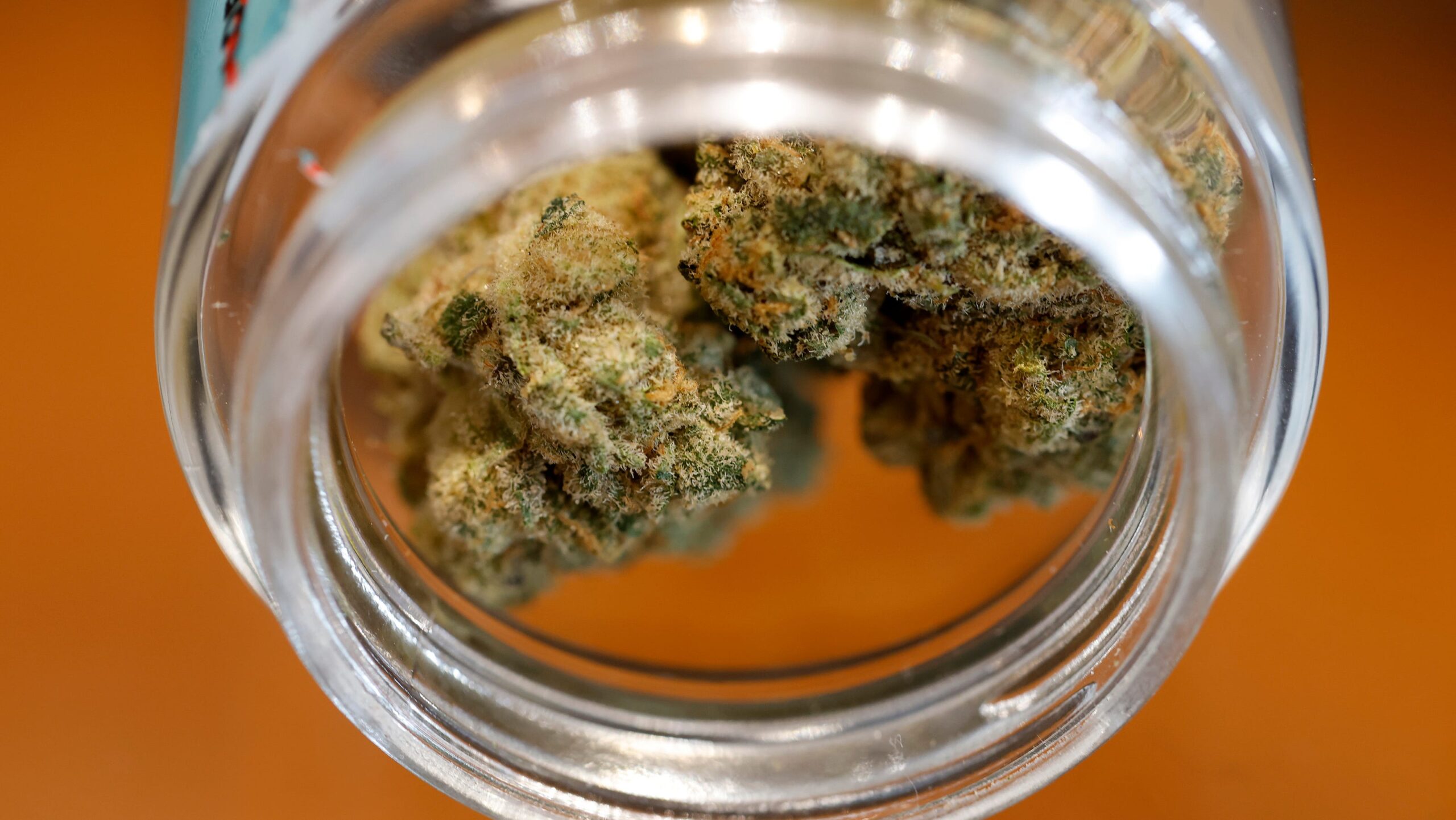Health
Trump Considers Reclassifying Marijuana Under Federal Law

President Donald Trump announced plans to potentially reclassify marijuana as a less dangerous drug under federal law. During a briefing at the White House on August 11, 2023, Trump stated that a decision could be made in the coming weeks. Currently, marijuana is classified as a Schedule I drug, a category reserved for substances deemed highly dangerous, addictive, and lacking accepted medical use.
In 2024, the Drug Enforcement Administration (DEA) proposed a rule to move marijuana to Schedule III, which includes drugs such as ketamine and testosterone. Trump acknowledged the complexity of the decision, citing the need to consider both the medical benefits of marijuana and its societal implications. He remarked, “Some people like it, some people hate it. Some people hate the whole concept of marijuana.”
Potential Impact on Research and Public Health
Experts believe that reclassifying marijuana could significantly benefit scientific research and medical applications. Raphael Cuomo, a biomedical scientist and professor of medicine at the University of California San Diego School of Medicine, emphasized that rescheduling marijuana would facilitate studies on its potential benefits and risks. This change could enhance dosing guidance and drug interaction data, particularly in fields like oncology and pain management.
Cuomo further noted that improved regulation could lead to better quality control for cannabinoid products approved by the Food and Drug Administration (FDA). It may also accelerate high-quality clinical trials aimed at standardizing products and addressing critical clinical questions that affect patient care.
Yet, the move is not without its concerns. Cuomo warned that reclassifying marijuana might be interpreted as a “safety endorsement,” particularly as rates of heavy and daily usage have risen. According to a 2024 study published in the journal Addiction, marijuana use has surpassed high-frequency drinking, with an estimated 17.7 million individuals consuming marijuana daily or near-daily in 2022, compared to 14.7 million for alcohol. The study also reported a substantial increase in the per capita rate of daily or near-daily marijuana use, which rose 15-fold from 1992 to 2022.
Health Risks Associated with Heavy Use
Research indicates that long-term and heavy cannabis use can lead to various health issues, including cognitive impairments, mental health disorders, and respiratory problems. The Colorado Department of Public Health and Environment has highlighted potential risks, such as lung irritation, chronic cough, and cardiovascular concerns associated with heavy cannabis consumption. A serious condition known as Cannabinoid Hyperemesis Syndrome can also occur in frequent users, leading to uncontrollable vomiting, which resolves upon cessation of use.
Should the administration proceed with the reclassification, Cuomo advised that public health campaigns should aim to educate the public about the risks of marijuana use, especially for vulnerable groups such as youth, pregnant individuals, and those with a history of psychosis. He pointed out that “risk perception often moves faster than policy,” underscoring the importance of timely and informative messaging to accompany any regulatory changes.
As discussions around marijuana policy continue to evolve, the potential reclassification by the Trump administration may mark a significant shift in how marijuana is perceived and regulated in the United States.
-

 Science3 weeks ago
Science3 weeks agoNostradamus’ 2026 Predictions: Star Death and Dark Events Loom
-

 Technology1 month ago
Technology1 month agoOpenAI to Implement Age Verification for ChatGPT by December 2025
-

 Technology6 months ago
Technology6 months agoDiscover the Top 10 Calorie Counting Apps of 2025
-

 Health4 months ago
Health4 months agoBella Hadid Shares Health Update After Treatment for Lyme Disease
-

 Health4 months ago
Health4 months agoAnalysts Project Stronger Growth for Apple’s iPhone 17 Lineup
-

 Health4 months ago
Health4 months agoErin Bates Shares Recovery Update Following Sepsis Complications
-

 Technology4 months ago
Technology4 months agoElectric Moto Influencer Surronster Arrested in Tijuana
-

 Technology5 months ago
Technology5 months agoDiscover How to Reverse Image Search Using ChatGPT Effortlessly
-

 Technology6 months ago
Technology6 months agoMeta Initiates $60B AI Data Center Expansion, Starting in Ohio
-

 Education4 months ago
Education4 months agoHarvard Secures Court Victory Over Federal Funding Cuts
-

 Technology6 months ago
Technology6 months agoRecovering a Suspended TikTok Account: A Step-by-Step Guide
-

 Technology2 months ago
Technology2 months agoDiscover 2025’s Top GPUs for Exceptional 4K Gaming Performance





















